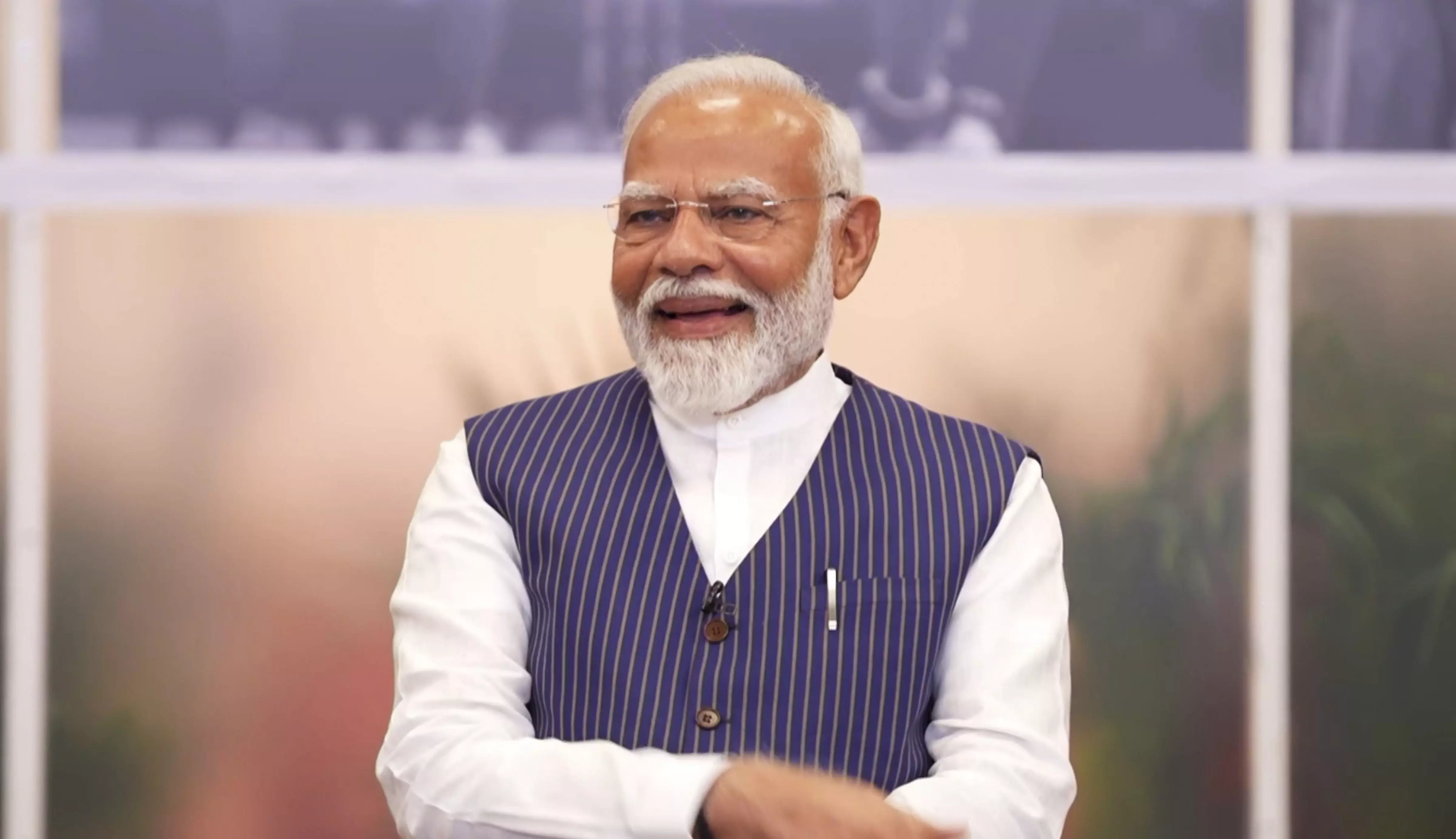PM on visit to Russia, Austria
Modi will leave Moscow on Tuesday afternoon for the Austrian Capital Vienna where he will conclude his visit on Wednesday that is expected to focus on “business, innovation and technology” and the strong partnership in start-ups

New Delhi: Prime Minister Narendra Modi will leave for Russia on Monday to co-chair the bilateral 22nd annual summit with Russian President Vladimir Putin on Tuesday, even as Mr Modi, who will visit Austria after that, on Sunday thanked Austrian Chancellor Karl Nehammer for hailing his forthcoming visit, the first by an Indian PM to the central European country in more than four decades.
The key visit in strategic terms will, of course, be to Russia where the annual bilateral summit is being held in Moscow after three years. The previous one had been held in New Delhi way back in December 2021, when President Putin had last visited New Delhi. The two leaders have, however, met on the sidelines of the SCO Summit in the Uzbek city of Samarkand in September 2022 and have also been in touch directly through telephonic calls. This will be the first visit by Mr Modi to Russia since the outbreak of the Russia-Ukraine war more than two years ago and will be the first bilateral trip by the PM in his third term in office.
Mr Modi will also be hosted to a private dinner by President Putin at the Kremlin on Monday evening.
All eyes will be on whether the proposed key defence mutual logistics pact -- the Reciprocal Exchange of Logistics Agreement (RELOS) --between the two nations will be signed during this visit or not. Mr Modi will discuss with President Putin on Tuesday at the summit the whole gamut of bilateral ties as part of the Special Privileged Partnership between both nations that encompasses defence supplies, including the supply of S-400 air defence missiles, the whopping current imbalance in trade ties, and energy cooperation between both countries. Mr Modi is expected to raise the issue of Indian nationals trapped in the Russian Army -- who are being forced to fight on the battlefront against Ukraine, and New Delhi is strongly pushing for their immediate release and return to India.
On Austria, Mr Modi wrote on X: “Thank You Chancellor Karl Nehammer. It is indeed an honour to visit Austria to mark this historic occasion. I look forward to our discussions on strengthening the bonds between our nations and exploring new avenues of cooperation. The shared values of democracy, freedom and rule of law form the bedrock upon which we will build and ever closer partnership.”
The Austrian Chancellor had earlier on Saturday said: “I very much look forward to welcoming Narendra Modi, Prime Minister of India, the world’s largest democracy, next week in Vienna. This visit is a special honour as it marks the first visit by an Indian PM in over 40 years, and a significant milestone as we celebrate 75 years of diplomatic relations with India. We will have the opportunity to talk about further deepening our bilateral relationship and closer cooperation on the many geopolitical challenges.” Mr Modi is due to leave Moscow on Tuesday afternoon and will then fly to Vienna, where he will conclude his visit on Wednesday, that is expected to focus on “business, innovation and technology” and the strong partnership in start-ups.
In Moscow, the Russia-Ukraine conflict is also expected to be discussed prominently and Mr Modi is expected to push for an end to the conflict and reiterate that it is adversely impacting the developing countries of the Global South. On Ukraine, Mr Modi is expected to reiterate New Delhi’s position that “diplomacy and dialogue” is the way forward and that both parties to the conflict will need to hold “sincere and practical talks” to resolve the issue. The situation in the Indo-Pacific region and cooperation in multilateral fora such as Brics, SCO and the G-20 are also expected to be discussed between Mr Modi and President Putin.
Defence cooperation, including the supply of the state-of-the art S-400 missiles, is also expected to be discussed during bilateral talks. So will civil nuclear energy cooperation, symbolised by the Kudankulam civil nuclear energy power plant (located in Tamil Nadu).
Bilateral India-Russia annual trade volumes have grown to a staggering $65 billion due to the bilateral “energy cooperation”, a euphemism for the large quantities of cheaper Russian oil being imported by India over the past two years. Of this, Indian exports to Russia are only a meagre $4 billion, while Indian imports from Russia are a staggering $60 billion. The trade imbalance issue is expected to figure during the talks between the two leaders.
